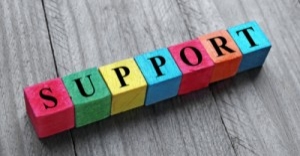

Incorporating STEAM displays within early learning environments offers children rich, open-ended opportunities for discovery, creativity, and problem-solving. From light tables with translucent materials to interactive coding corners and nature-based science trays, each provocation is designed to ignite curiosity and encourage independent exploration. The following provides a list of STEAM Displays and Learning Provocations For Children To Explore Independently.
STEM (Science, Technology, Engineering, and Mathematics) education for toddlers is all about fostering curiosity, problem-solving, and hands-on learning through play. Early exposure to STEM concepts helps build foundational skills that support cognitive development and creativity. The following article provides information on Ways to Introduce STEM to Toddlers, STEM Activities For Toddlers, STEM Materials, STEM Goals, Linking EYLF To STEM and more.
Invisible Ink is a great science experiment that enables children to create invisible art and make it magically appear using lemon juice!
STEM can be understood as an integrated learning approach that introduces Science, Technology, Engineering and Mathematics through play and everyday activities. The following article provides information on Understanding STEM, How To Teach STEM, Benefits Of STEM, Stem Activities and more.
Victoria’s first pilot program is called Children’s University. The program is organised by Swinburne University The special focus has been given to Science, Technology, Engineering, and Mathematics (STEM). The aim of this program is to help and support those students who want to continue further studies based on STEM. This program also aims to make the goal of the students more accessible by making them prepared with the different and various knowledge of STEM and also helps to improve the educational outcomes.
STEM, the word stands for Science, Technology, Engineering, and Mathematics. It is a way of education where the subjects that are mentioned above are taught in coherence with each other instead of in isolation. It focuses to make a bridge between the learning gap and experience through child-centric materials with the aim of making children active learners. The following article provides information on STEM Education, Incorporating STEM Education In Different Ways, Learning Environment and STEM and more!
This STEAM activity is a great project. It uses shapes, gravity and movement to create art with some awesome colours. Children will learn to create a roly-poly art using a fun technique with balls. Children will begin to understand explore its effects and use it to create a colourful piece of art.
Since the first few years are when the brain is developing most rapidly, it makes sense to incorporate STEM concepts, skills and dispositions in early childhood education. Here are a few examples of learning experiences that introduce Science, Technology, Engineering and Mathematics through fun and engaging activities.
“Little Scientists” has announced the third National Little Scientist Early Award with entries now open until 31 May 2022. It is the only national award that celebrates Early Stem education and also offers a platform to be recognised in the world of early education.
This amazing activity will turn the learning environment into space with several colourful rockets flying here and there. This is an activity thus exercising the fine motor skills of the child. Kids here will be making and blowing their own straw rockets.
 On 10 December 2025, the Fair Work Commission issued a major determination affecting the Children’s Services Award 2010 (MA000120). These changes form part of the… Read More
On 10 December 2025, the Fair Work Commission issued a major determination affecting the Children’s Services Award 2010 (MA000120). These changes form part of the… Read More
 Over the next five years, educators across the sector will see steady, structured wage increases designed to lift pay to the new benchmark rates for… Read More
Over the next five years, educators across the sector will see steady, structured wage increases designed to lift pay to the new benchmark rates for… Read More
 The Fair Work Commission has introduced important changes to how cooks are classified and paid under the Children’s Services Award 2010. These changes recognise that… Read More
The Fair Work Commission has introduced important changes to how cooks are classified and paid under the Children’s Services Award 2010. These changes recognise that… Read More
 At the centre of this case is an incident captured on CCTV at an early learning service in Bathurst, where 18‑year‑old educator Hayley Kelleher grabbed… Read More
At the centre of this case is an incident captured on CCTV at an early learning service in Bathurst, where 18‑year‑old educator Hayley Kelleher grabbed… Read More
© 2009-2025 Aussie Childcare Network Pty Ltd. All Rights Reserved.

